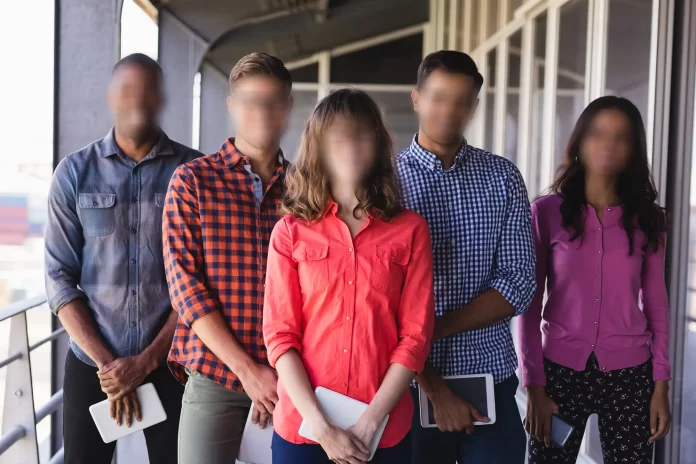*The inability to distinguish between other people’s faces or identify them is a sign of brain illness. The severity of this problem varies; some people can have trouble distinguishing between faces of strangers or people they’ve just met, while others might have trouble even recognising familiar faces.
*They might not be able to identify their own face in certain extreme circumstances. They often use other methods of face recognition
I can’t imagine living in a world filled with strangers. Just the thought of it is unsettling. Not being able to recognize your friends and family, makes matters all the more worse. Face blindness, as it is known in medical parlance, is the inability to recognise people, and can be a regular nightmare for a lot of people.
Dennis Nealon, in a research article from the Harvard Medical School, said face-blinding is a “mystifying condition that can trick us into believing we recognise people we’ve never met or make us fail to recognise those we have.It has has been previously estimated to affect between 2 and 2.5 percent of people around the the world’.
The inability to distinguish between other people’s faces or identify them is a sign of a serious brain illness. The severity of this problem varies; some people can have trouble distinguishing between the faces of strangers or people they’ve just met, while others might have trouble even recognizing familiar faces. In extreme circumstances, they may not be able to recognise themselves as well. They often have to resort to other methods of face recognition.
However, these methods are less reliable than the normal face recognition. Unsurprisingly, prosopagnosia, which is what it is referred to in medical terminology, can often lead to significant social issues. According to a number of sources, 1 in 50 individuals have prosopagnosia. Face recognition deficiencies can be accompanied by impairments in other categories of identification, such as scenery, vehicles, and emotional expressions, but they can also happen on their own.
The symptoms of prosopagnosia are rather distinct. In addition to the trouble they have in identifying faces, people with prosopagnosia sometimes struggle with determining whether they have seen a face previously.
Even family members with whom they spend most of the time, such as their spouse and kids, might be difficult to recognise, in severe situations. It’s vital to remember that difficulties with face recognition, not name recall, are what prosopagnosia is characterized by. Constant dependence on non-facial cues, such as hair, gait, dress, voice, and other cues, is one of the signature indicators of prosopagnosia.
One of the most frequent complaints of prosopagnosics is that they have problems following the storylines of television programs and motion pictures because they are unable to remember who the characters are. Prosopagnosics can have trouble picturing the faces of persons they are familiar with.
Prosopagnosia has been documented since the beginning of time, but Bodamer’s report, conducted in 1947, on two people with facial recognition difficulties was a landmark study since it provided a thorough description of their symptoms and distinguished prosopagnosia from general visual agnosia.
Bodamer invented the name prosopagnosia, which combines the Greek word for face (prosopon) with the medical term for difficulty in recognizing (agnosia).
-
Prosopagnosia can be incredibly alienating for some people, who may develop social anxiety and avoidance. Recognition issues can lead to distressing social interaction challenges, such as failing to identify close friends, coworkers, and family members
-
Improved knowledge in the field might make it easier to identify and refer people who need assistance in navigating social situations
Face blindness has not been specifically treated by medicine, thus therapy is used most of the time. It focuses on enhancing recognition skills. Many people who are face-blind may develop adaptation strategies to aid themselves in recognizing the people they care about.
These methods could entail attempting to identify people based on distinguishing characteristics other than their appearances, such as their voices, walking patterns, or haircuts.
This is not always effective since subtle changes to these characteristics might confuse people, because the effectiveness of adaptation approaches in general relies on the person’s particular form of face blindness.
Prosopagnosia is often identified by neurologists using a number of tests aimed at evaluating a patient’s memory and face-recognition abilities. It may take some time, since doctors typically go to great lengths to make sure that a patient’s facial blindness is not a sign of a more serious degenerative neurological disorder.
Prosopagnosia can be incredibly alienating for some people, who may develop social anxiety and avoidance. Recognition issues can lead to distressing social interaction challenges, such as failing to identify close friends, coworkers, and family members.
These issues frequently result in feelings of humiliation, remorse, and failure, as well as a persistent fear of offending people. Most participants spoke of some level of anxiety and avoidance of social events, such as family and social gatherings and meetings, when facial recognition was crucial. Improved knowledge in the field might make it easier to identify and refer people who need assistance in navigating social situations.
*********************************************************
Readers
These are extraordinary times. All of us have to rely on high-impact, trustworthy journalism. And this is especially true of the Indian Diaspora. Members of the Indian community overseas cannot be fed with inaccurate news.
Pravasi Samwad is a venture that has no shareholders. It is the result of an impassioned initiative of a handful of Indian journalists spread around the world. We have taken the small step forward with the pledge to provide news with accuracy, free from political and commercial influence. Our aim is to keep you, our readers, informed about developments at ‘home’ and across the world that affect you.
Please help us to keep our journalism independent and free.
In these difficult times, to run a news website requires finances. While every contribution, big or small, will makes a difference, we request our readers to put us in touch with advertisers worldwide. It will be a great help.
For more information: pravasisamwad00@gmail.com



